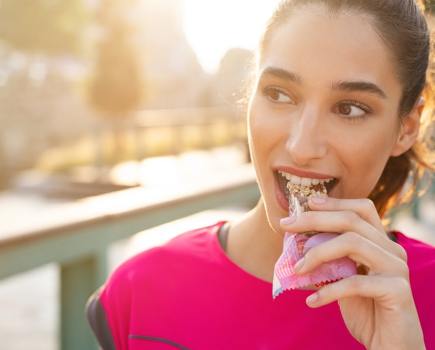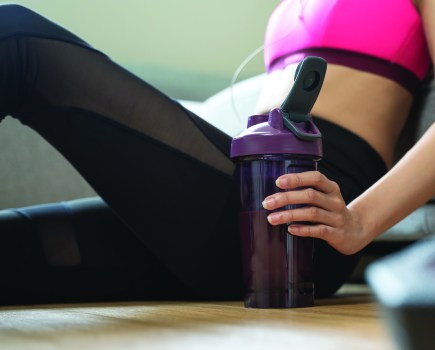
Dietician Nichola Ludlam-Raine explains how to manage your sugar intake
Advertorial
Eating less sugar might be on your list if you are striving to adopt a healthier diet, but with so much misinformation out there, it can be hard to strike the perfect balance. Nichola Ludlam-Raine, a specialist registered dietician, uncovers the best ways to manage sugar intake as part of a healthy balanced diet…
What exactly are free sugars and what’s the current recommended daily limit?
Nichola says: ‘Our total sugar allowance is 90g per day according to Reference Intake guidelines, but that includes sugar from things like dairy and free sugars. These are any sugars that have been added to food by the manufacturer and are found in everyday items like biscuits, cakes and buns, fruit juice and honey. The upper limit of free sugars is 30g, which is the equivalent to around seven sugar cubes.’
Can non-sugar sweeteners be a good option as part of a weight loss program?
Nichola says: ‘Non sugar-sweeteners are found naturally in lots of everyday products like toothpaste, cough syrup and chewing gum. The only sweeteners available on the market have been rigorously tested and have been approved by the European Food Safety Authority. They can be useful as they help you enjoy a sweet taste without having any impact on blood glucose levels.’
Are there any shortcuts to help us manage sugar intake without missing it?
Nichola says: ‘Definitely. Changing your environment and creating “pause points” is a good place to start. For example, put the biscuit tin in an inconvenient location in the kitchen, keep crudités in the fridge and have easy access to the fruit bowl. As a general rule, think: “moderation and not deprivation.”’
Do I have to cut out all sweet treats as part of a healthy diet?
Nichola says: ‘Not at all. Make some smart swaps. Xylitol works really well in baking as it’s the weight-for-weight equivalent to sugar and it’s good for your teeth too! You might have to play around with some sweeteners as the consistency isn’t the same as cane sugar. For example, one non-sugar sweetener might work well in jam but not in muffins or flapjacks. Beware that some sugar products have a bit of a health halo around them, but things like maple syrup and honey are still considered free sugars and so should be eaten in moderation.’

Are diet soft drinks a healthier alternative to regular versions?
Nichola says: ‘Liquid calories are easy to overconsume as our tastebuds love the combination of sugar and fat. But making the switch from full fat to diet drinks containing non-sugar sweeteners is often the easiest way to reduce your overall added sugar intake and will help you to drastically cut calories.’
Should I limit fruit to manage my sugar intake?
Nichola says: ‘In the UK we talk about the 5 A Day (one portion being a handful of fruit or veg, or 80g worth). The problem is that the average person in the UK is only having about two to three pieces of fruit and vegetables each day. I personally would never demonise fruit. If you have type two diabetes or are someone who eats a lot of fruit, it’s better to spread it out across the day and limit fresh juice to no more than 150ml per day, because some of the fibre is removed which changes the nutritional profile. But also, all you need to get one of your 5 A Day is a 150ml serving of fruit juice.
‘A small banana is a great snack, or try some berries in porridge, or a piece of fruit and a handful of nuts will provide some healthy fats that will lower the overall glycemic index. A good idea is to also try to aim for 30 different plant-based foods throughout the week, that way you will get so much variety and nutrients.’
Is there anything we can do to reduce the impact of glucose on our bodies?
Nichola says: ‘If it suits your lifestyle, going for a gentle walk before or after a sugary or high-carb meal can be beneficial. Exercise helps to sensitise cells to take up glucose without the need for insulin being present. Try not to get into the mindset that you have to burn off your food, but if you can go for a walk within 30 minutes of eating it will help to steady blood glucose spikes.’
For more information on the use of non-sugar sweeteners visit: britishsoftdrinks.com/low-no-calorie-sweeteners
Words: Louise Pyne







